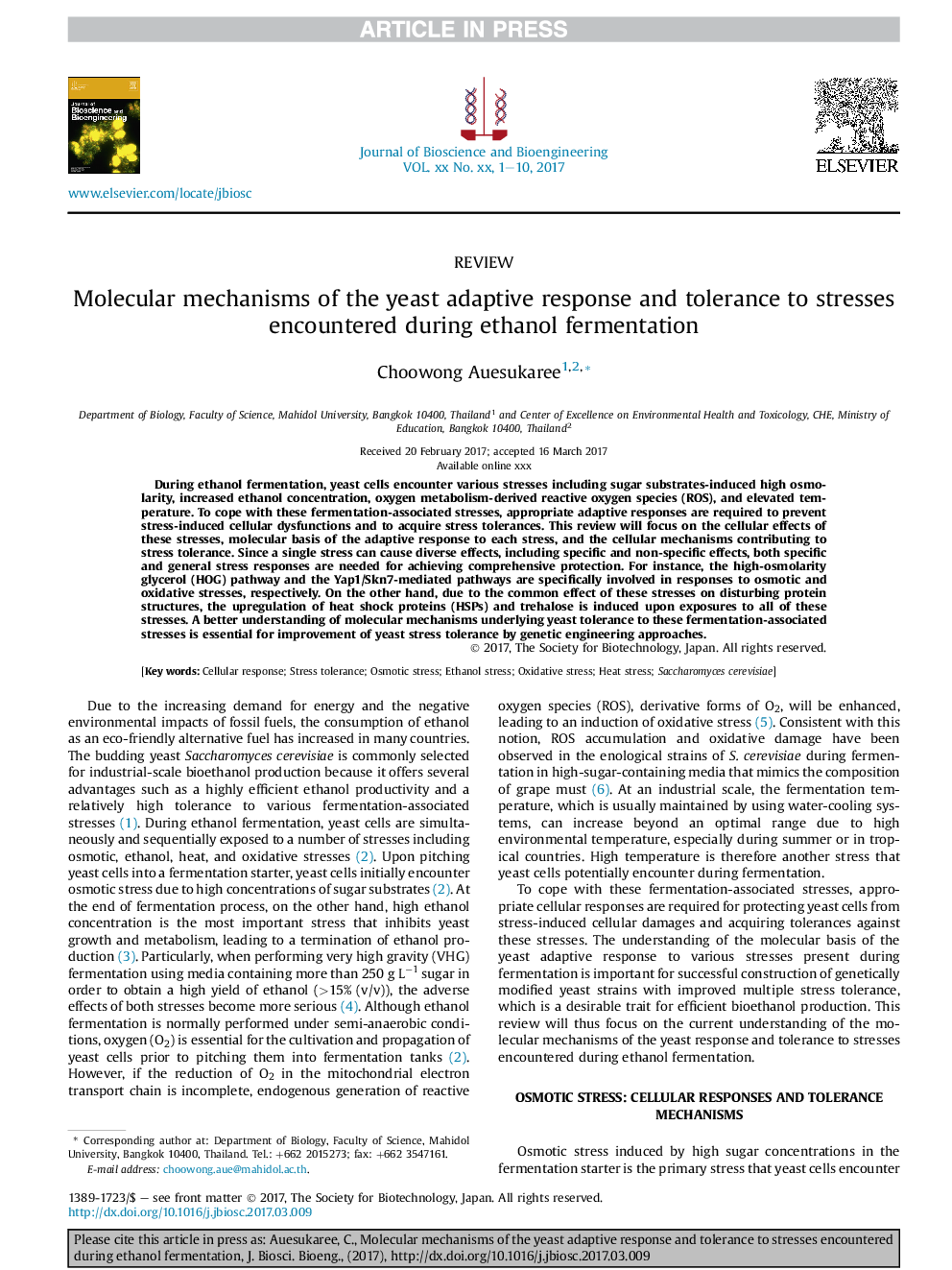| کد مقاله | کد نشریه | سال انتشار | مقاله انگلیسی | نسخه تمام متن |
|---|---|---|---|---|
| 4753280 | 1416551 | 2017 | 10 صفحه PDF | دانلود رایگان |
عنوان انگلیسی مقاله ISI
Molecular mechanisms of the yeast adaptive response and tolerance to stresses encountered during ethanol fermentation
ترجمه فارسی عنوان
مکانیسم های مولکولی پاسخ انطباق مخمر و تحمل به تنش هایی که در اثر تخمیر اتانول مواجه می شوند
دانلود مقاله + سفارش ترجمه
دانلود مقاله ISI انگلیسی
رایگان برای ایرانیان
کلمات کلیدی
موضوعات مرتبط
مهندسی و علوم پایه
مهندسی شیمی
بیو مهندسی (مهندسی زیستی)
چکیده انگلیسی
During ethanol fermentation, yeast cells encounter various stresses including sugar substrates-induced high osmolarity, increased ethanol concentration, oxygen metabolism-derived reactive oxygen species (ROS), and elevated temperature. To cope with these fermentation-associated stresses, appropriate adaptive responses are required to prevent stress-induced cellular dysfunctions and to acquire stress tolerances. This review will focus on the cellular effects of these stresses, molecular basis of the adaptive response to each stress, and the cellular mechanisms contributing to stress tolerance. Since a single stress can cause diverse effects, including specific and non-specific effects, both specific and general stress responses are needed for achieving comprehensive protection. For instance, the high-osmolarity glycerol (HOG) pathway and the Yap1/Skn7-mediated pathways are specifically involved in responses to osmotic and oxidative stresses, respectively. On the other hand, due to the common effect of these stresses on disturbing protein structures, the upregulation of heat shock proteins (HSPs) and trehalose is induced upon exposures to all of these stresses. A better understanding of molecular mechanisms underlying yeast tolerance to these fermentation-associated stresses is essential for improvement of yeast stress tolerance by genetic engineering approaches.
ناشر
Database: Elsevier - ScienceDirect (ساینس دایرکت)
Journal: Journal of Bioscience and Bioengineering - Volume 124, Issue 2, August 2017, Pages 133-142
Journal: Journal of Bioscience and Bioengineering - Volume 124, Issue 2, August 2017, Pages 133-142
نویسندگان
Choowong Auesukaree,
